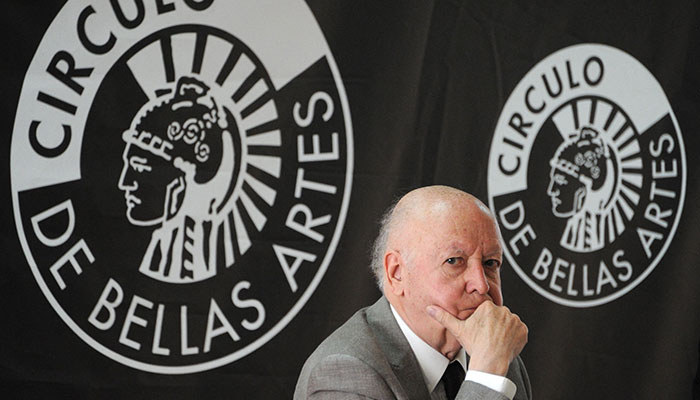[ad_1]

SANTIAGO: Celebrated Chilean writer Jorge Edwards, winner of the Cervantes Prize in 1999, died on Friday in Madrid at the age of 91, his son told AFP.
“He died a couple of hours ago,” his son, also called Jorge Edwards, said by telephone from Santiago.
His father was best known for his novel “Persona non grata” in which he recounts his disillusionment with the Cuban revolution.
He was honored in 1999 with the prestigious Cervantes Prize, a lifetime achievement award for Spanish language literature.
“He basically had very advanced diabetes which meant that he had to be taken to hospital at the weekend and then after coming home he died,” added Edwards’s son.
The Cervantes Institute in Spain wrote on Twitter: “An exceptional novelist, brave essayist and journalist with his finger on the news pulse has left us.”
Edwards was born in Santiago in 1931.
He studied law at the University of Chile before taking a postgraduate degree at Princeton in the United States.
He began a diplomatic career in 1957 and was posted to Paris, Lima and Havana, the last of which left a lasting impression on him.
He reopened Chile’s embassy in Havana in 1971 as a representative of the socialist Salvador Allende government, one of the first in the region to establish diplomatic ties with the Fidel Castro regime.
But he left the Cuban capital after just three months when Castro declared him a persona non grata, the inspiration for his novel.
After the 1973 military coup that toppled Allende, Edwards quit diplomatic service and moved to Barcelona, where he met fellow South American literary luminaries Gabriel Garcia Marquez and Mario Vargas Llosa.
He returned to diplomacy in 1994 when he was named ambassador to UNESCO in Paris.
Throughout his diplomatic career he juggled diplomatic duties with his writing.
He again settled in Paris for his last diplomatic post, between 2010 and 2014, during the administration of the conservative Sebastian Pinera.
[ad_2]
Source link


